Does your toddler pay less attention? If yes, then he may be suffering with attention deficit hyperactivity disorder. At what age does ADHD usually occur and what are the signs and symptoms of ADHD? You will get to know in detail about the ADHD in this article.
Many children with ADHD are left untreated until the school age. Children as young as 4 can be diagnosed with ADHD. ADHD behaviors often remain unidentified till the elementary school as the preschool children commonly exhibit the core behaviors of ADHD.
This article discusses the signs and symptoms of ADHD in toddlers. It discusses the ways to identify and treat ADHD in children.
What is ADHD in Toddlers?
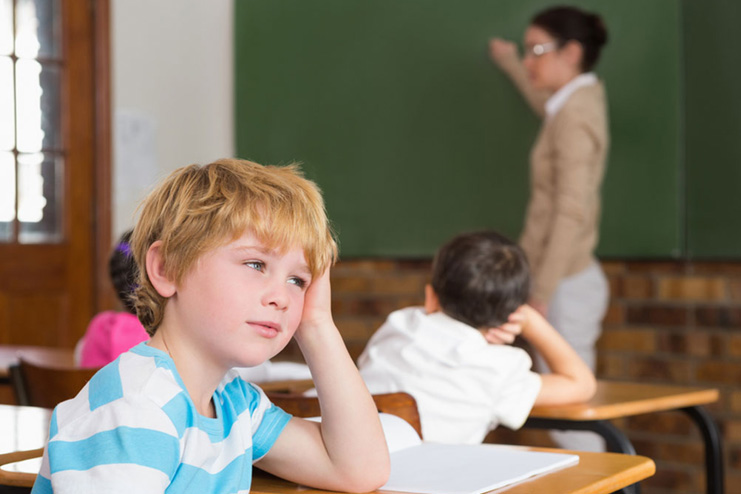
ADHD is a neurodevelopmental disorder. Children below the age of 7 years are more prone to be affected by the ADHD. ADHD obstructs spontaneous responses in children ranging from speech to attentiveness. School is the best platform to recognize the child’s problem relating to attention, spontaneity, and hyperactivity.
In the past ADHD was called attention deficit disorder (ADD). It was named as ADHD, when the medical community identified that it includes hyperactivity and impulsivity.
ADHD symptoms may be mild, moderate or severe. According to the NIH, ADHD can be easily carried to the teenage and adulthood stages if left unnoticed. The behaviors that ADHD children exhibit may vary as per the gender.
Causes of ADHD:
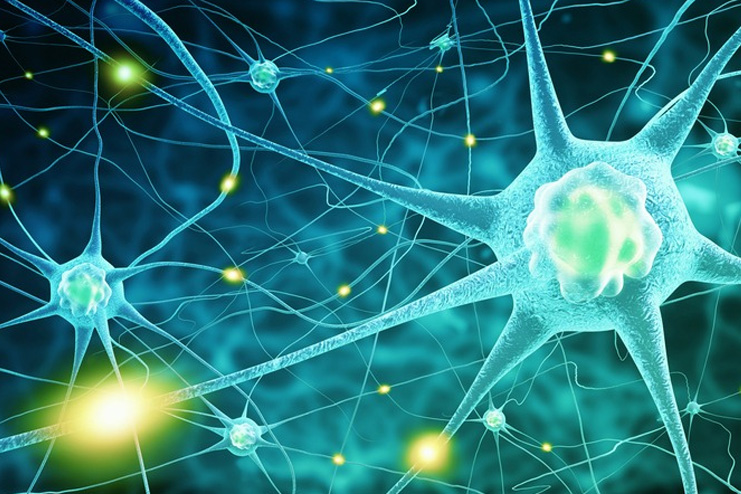
Environmental and genetic factors together may contribute to ADHD in children. Here are a few causes of ADHD in child:
Brain Function and anatomy: Attention and activity may be retarded by the low activity in various parts of the brain.
Parasites & Worms: Parasites and worms in the digestive system may lead to hyperactivity in children.
Low levels of neurotransmitters: Lower levels of neurotransmitters like Dopamine, and Norephinephrine may introduce the symptoms of ADHD in children. Certain drugs and substances like nicotine, caffeine may deplete the levels of neurotransmitters.
Genetic factors: A child who is diagnosed with ADHD has the chance of having a parent or sibling with ADHD.
Few other causes of ADHD are head injuries, prematurity, low birth weight, prenatal exposures to alcohol or smoking, and toxins in the environment.
What Are the Signs and symptoms Of ADHD In Toddlers:
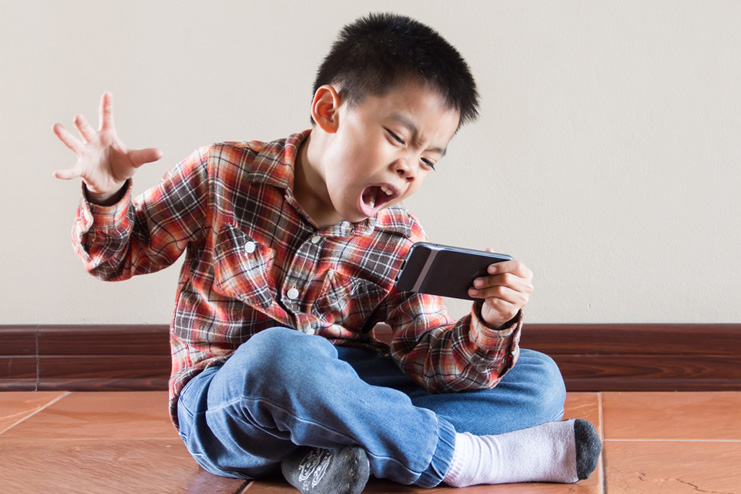
There are number of behaviors that show your kid has ADHD.
As per the research of National Institute of Mental Health (NIH), the three major symptoms of ADHD are:
1. Inattention
2. Hyperactivity
3. Impulsivity
Here are the few other early signs of ADHD in toddlers:
- Struggling to focus on activity or listening at something
- Inability to complete the tasks before getting bored
- Problem in following the instructions and processing as per the instructions
- Less or poor social interaction
- Hyperactivity
- Sudden tantrums
- They seem restless
- Find hard to settle down at one place, sleep, and sit for meals
- Unable to wait till their turn comes while playing
- No control over their emotions
- More prone to outbursts
- Talking and making excessive noise
- Impatient towards others
- Not aware of social limits
Treating ADHD in Toddlers Naturally:
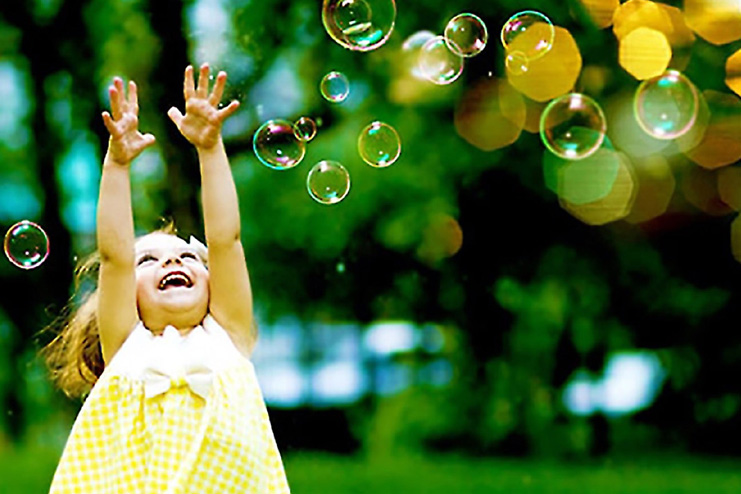
Medications used to treat ADHD may cause the side effects including sleep problems, mood swings, loss of appetite, heart problems, suicidal thoughts or actions etc.
There are some natural treatments that parents can follow to help the child with ADHD. Here are a few ways to cope with the ADHD in toddlers.
1. Parental Therapy:
Behavioral therapy is the first step in treating the ADHD children. This behavioral therapy works well to resolve the specific behavioral issues. Parents need to be equipped with the strategies and the techniques to deal with ADHD children. Behavioral therapy along with the medication can be effective in treating the disorder.
2. Spending time Outside:
Spending time outside may benefit the children with ADHD. Nature is the best setting to help child deal with the emotions, concentration of your child. Exposure to green environment will help the kid with ADHD.
3. Get Vitamin Rich Food:
Vitamins and minerals play an important role in treating the child with ADHD. Here are the list of vitamins and minerals that help in treating the kid with ADHD.
a) Vitamin B6 and Magnesium:
Vitamin B is important for the healthy nervous system. Vitamin B6 maintains the proper functioning of brain and nervous system. It helps the body to make hormones serotonin and melatonin, which help in regulating the mood and regulating the internal clock respectively.
b) Vitamin C:
Vitamin C is involved in wide variety of problems and helps brain in the production of neurotransmitters.
c) Zinc:
Lack of zinc results in the impaired DNA, RNA, and protein synthesis. Zinc deficiency may result in the symptoms similar to ADHD.
Meat, legumes, seeds, nuts are rich source of zinc. This mineral helps your body to support cell membrane growth by allowing it to make proteins. Check with your doctor before getting zinc supplement as too much of zinc may cause various health problems.
d) Omega-3 Fatty acids:
Omega-3 fatty acids found in fish oil play a vital role in the brain development and nerve cell function. This nutrient is very important for the ADHD child. As the body can not generate Omega fatty acids on its own it is necessary to include supplements which are rich in this vitamin. Two types of omega-3 fatty acids are found in fish oil. They are EPA and DHA.
A good omega fatty acid supplement is known to contain 2 to 3 times more EPA than DHA.
4. Avoid Food Colors:
Some studies concluded that artificial food colors may increase the risk of ADHD in children.
Avoid the foods with artificial colorings and preservatives. Look for the foods with green and white USDA certified organic label. Avoid the foods with the following colors in the ingredients list: Blue 1 and 2, Citrus Red 2, Green 3, Red 40, Yellow 5 and 6. Not only these avoid the foods with the color and number in the ingredients label.
5. Avoid Processed foods:
Habituate clean eating in your child and avoid processed foods, additives and chemicals. Here are the list of foods to avoid:
a) Sodium:
Body requires sufficient amounts of salt to function best. Too much levels of salt may contribute to wide range problems including headaches, hypertension. The amount of salt intake depends on the age of the children as follows:
1 to 3 years- 0.3 g of sodium (2g salt a day)
4 to 6 years- 1.2g of sodium (3g of salt a day)
7 to 10 years-2g of sodium (5g of salt a day)
11 years and over- 2.4g sodium (6g of salt a day)
Try to read the product labels to get an idea of daily sodium consumption.
b) Monosodium Glutamate:
It is a flavor enhancer that is found in foods like salad dressing, bouillon cubes and baby foods. MSG may contribute many adverse cognitive reactions.
c) HVP:
It is a flavour enhancer found in foods like chilli, sauces, dips, and soy vegetarian products. HVP may also contain MSG.
d) Sugar:
Sugar may not yield good results as its taste. Its overuse may show serious implications on energy, memory and concentration. Sugar can increase the ADHD symptoms.
Artificial sweeteners are also known to engage and destruct the proper cognitive functions and emotions.
6. Essential Oils:
Essential oils contain the concentrated form of various plant compounds. They are extracted from the leaves, roots, stem, and blossoms of the plant. They have been in use for several years to treat many physical and mental health problems.
Some people believe that essential oils will help to minimize the symptoms of ADHD. Essential oils are safe. Speak to your doctor if your child has asthma or any other allergies.
- Lavender: It helps to have a better sleep. It helps your child to cope up with the stress. If your child had a stressful day, apply it to your kid’s feet or put a few drops of lavender oil in a diffuser at bed time for smooth fragrance.
- Peppermint Oil: It increases the energy levels and improves the focus. Add it to the coconut oil and apply to the sore muscles after the workout will help in regaining the energy levels.
- Rosemary: Studies found that the smooth fragrance of this oil will help to develop cognitive skills. The thinking skills will increase after the exposure to the fragrance of this oil.
7. Avoid Potential Allergens:
Restrict the foods in your child’s diet that cause allergens. Check with your child by avoiding these foods:
- Chemical additives, artificial food colors and preservatives.
- Milk and eggs
- Chocolates
- Foods that contain salicylates including berries, chilli powder, apples and cider, grapes, oranges, peaches, plums, prunes, and tomatoes.
8. Carom Seeds:
It has a strong smell and helps to get rid of indigested food and works effectively to kill parasites and worms in the digestive system. It is the best home remedy to treat hyperactivity in children.
Take equal quantities of carom seeds and raw wholesome brown sugar and grind them well. Make out small balls in the size of chick pea and store them in a air tight container. Give two balls to your kid before bed time and it is not recommended to take water after consuming this mixture.
This home remedy will help to increase the attention and immunity of your kid.
8. Maintain Stable Blood Sugar:
Adopt healthy eating food habits which help to deal with the attention, irritability, and energy issues. Don’t make your kids to skip meals or to eat the foods which are high in simple carbohydrates. Sometimes ADHD medication may suppress your kid’s appetite.
Here are the few tips to maintain stable blood sugar in your child.
- Set the proper times for lunch and dinner.
- Include protein rich foods in breakfast which helps in stabilizing the blood sugar.
- Pack a healthy snacks for school.
9. Exercise:
Exercise will help the brain to function more effectively and efficiently. Exercise improves the mood enhancing hormone known as endorphins It can improve focus and attention by increasing brain hormone levels.
Short term exercises including yoga will have significant affect on the ADHD children. They impart positive affects on attention, activity, impulse, executive functions and other ADHD symptoms.
10. Neuro feedback:
Get your kid’s brain wave activity record by consulting your doctor. It helps in understanding the impact of various activities on your child’s brain development.
11. Proper Sleep:
Ensure that your child have proper sleep. Proper sleep helps in dealing with the restlessness and impulsivity. Help your kid to fall asleep soon by teaching them stories at the bed time. Decorate your kid’s room with their favorite cartoon and make it look cool. Keep your kid away from the screens before bed time.
12. Music Therapy:
Allow your kid to take piano lessons or listen to a peaceful music. Playing music teaches your kid on how to use the different parts of the body at a time effectively. It also teaches them to cope with the group work. Music playing enhances the brain’s ability to switch between various tasks.
13. Get Sufficient exposure to Sunlight:
Make sure that your kid’s room receives enough sunlight. Morning sunlight helps to improve the mood and deal with the core symptoms of ADHD.
Sunlight boost in the early morning helps your kid to fall asleep early in the night.
14. Encourage Outdoor Play:
Encourage your kids to play outdoors in the playgrounds with their friends. This help them to find new friends and learn new things. Energetic play benefits your child’s physical and mental development.
Never let your kid to feel bored, try to engage in the creative activities like crafts and arts with their friends.
15. Teach them new skills:
Make your kid to get involved in their own activities like getting ready top school, packing their snack box. Help your kid on reorganizing their daily routines.
Here are the few other daily routines that your kid can organize.
- Organize their clothes and toys properly
- Make your kid to learn and use calenders, timetables, and remainders.
- Proper organized sleep times.
16. Green Time:
Green time allows the kid to enhance attention skills. Living closer to spending time with the nature has many significant affects. They reduces the risk of Type 2 diabetes, cardiovascular diseases, premature death, stress and high blood pressure.
The best green activities are gardening, walking, exercising or playing in the park.
17. Meditation:
Meditation will help to achieve stable and peaceful mind. It helps to build positive emotions. It strengthens self regulation activities and enhances stress managing ability.
Several studies concluded the significant benefits of meditation on ADHD.
18. Reduce Screen Time:
These days kids stick to the screens of mobiles, laptops, and TVs hours together. Screen time reduces their physical activity, attention and increases their hyperactivity. Have a talk with your kids about the dangers of too much screen time.
Make your dining area a technology free zone which is reserved for only food and family conversation.
19. Behavioral Therapy:
It is a well known successful method for treating the kids with ADHD. It involves stimulating the desired behaviors in the children by offering prizes and rewards.
It improves child’s behavior, self – control, and self esteem. It works very effectively in young children if offered by their parents. Parents should be trained in behavioral therapy to help their child with ADHD succeed at home, school, and in relationships. Invest time and effort in learning and practising the behavioral therapy to bring lasting benefits to your kid.
20. Adopt the Learning Ways:
Help your kids in reading by highlighting the information. Implement the visual ways to teach your kid. Provide appropriate places for learning. Inculcate learning in your child by talking to them the career aspirations.
21. Let them realize the value of Personal Effort:
Teach your kids the problem solving skills and make them ready to solve the problems on their own. This boosts their self esteem and confidence levels.
Tips to Tackle ADHD Child Coping Skills:
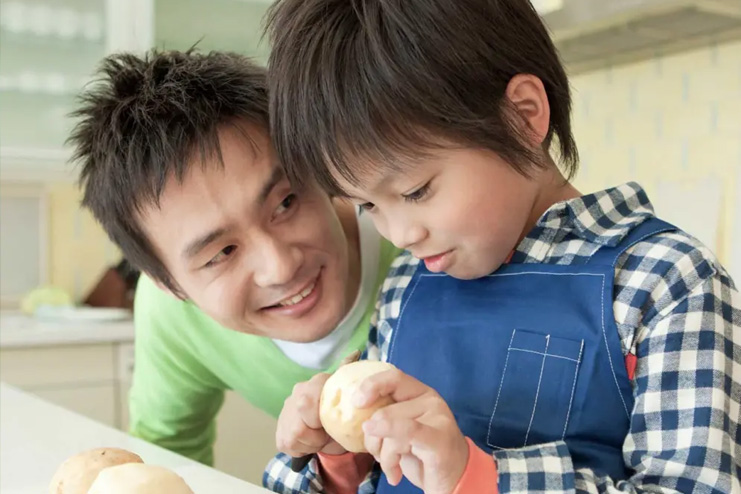
Here are a few tips to deal with the ADHD child:
• Be affectionate towards ADHD child
• Help them to build a success fostering environment
• Involve your child in the creative activities like crafts and cooking.
• Encourage your child to get exercise and get enough sleep.
• Limit their interaction with electronic devices and encourage outdoor games.
Diagnosis of ADHD:
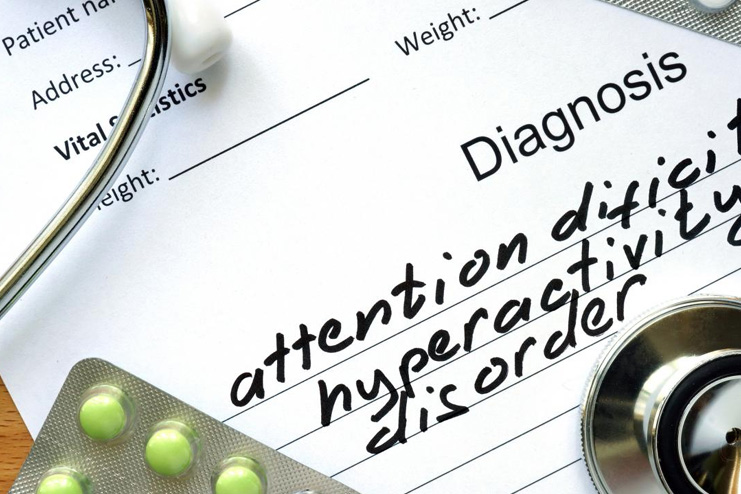
Here are the few circumstances that make your doctor suspect for the ADHD in children.
- Genetic factors
- If the mother has the habit of smoking, drinking, and used drugs during the pregnancy
- Preterm or low birth weight
- Delayed motor, speech, and language skills
- Family history of ADHD
- Behavioral difficulties
Some medical conditions may cause the symptoms similar to ADHD. They include
- Brain injury
- Thyroid problems
- Vision or hearing problems
Medications for ADHD:
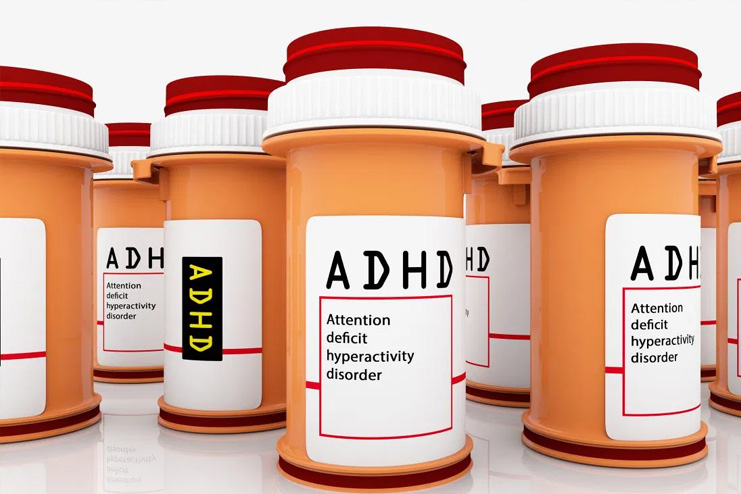
Medications will help the ADHD child to cope up with the behaviors and symptoms. Medications in long run may improve their school achievement, relationships or behavioral issues.
Several different types of FDA approved medicines are available to treat the ADHD in children below 6 years.
Stimulants: These are the most common types of medicines used to treat ADHD. They help brain to work effectively by increasing certain chemical sin the brain.
Stimulants increases the release of neuro transmitters like dopamine and norepinephrine. It blocks or slows the process of these transmitters being absorbed back there by prolonged availability of the neurotransmitters in the brain help it to work well by effectively transmitting and receiving the messages.
Non Stimulants: They do not work as quickly as stimulants. But their effects lasts upto 24 hours.
These medications may have different side effects on the children like loss of appetite and sleep problems. These medications may not work well all the children. There are three types of non stimulants that doctors usually prescribe. They are:
- ADHD specific stimulants
- Blood pressure medications
- Antidepressants
As per the research conducted by NCBI, children with ADHD are more likely to develop speech delays.
Parents should identify the ADHD in childhood to prevent it from carrying its adverse effects to the adulthood. ADHD treatment usually combines medication and natural ways. These alternative treatments and the supplements may interact with the drugs to cause side effects. Consult your doctor before practicing any new remedy or stopping any existing medicine.









































